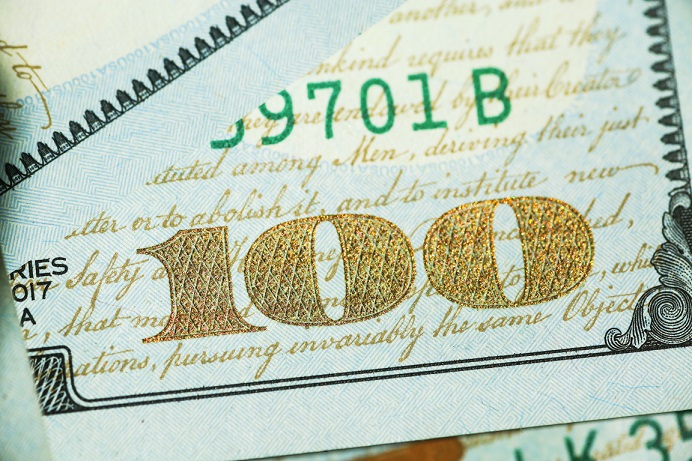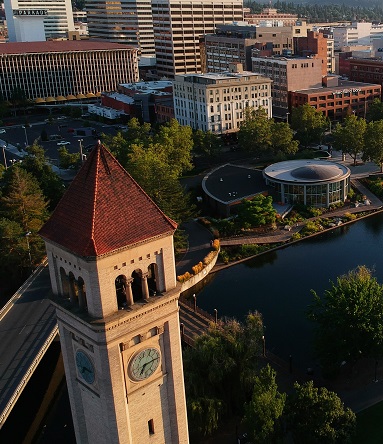
On Jul. 25, 2021, recording fees in Seattle, Spokane, and throughout Washington State went up significantly. Records of loans and liens, community property agreements, surveys and plats are all $100 pricier.
In this Q&A, we’ll flesh out why Washington State upped its recording prices, and the related impacts.
What Does a $100 Recording Fee Hike Mean for a Washington Home Buyer?
Buyers who take out home loans in Washington state usually record the deed and a deed of trust to represent the home loan debt. The buyer may not be watching the fee statements. Title companies submit recording fees out of the buyer’s escrow account. An added $100 in office fees could be just be a drop in the bucket for someone buying a Washington home. And yet, for borrowers who hope to just squeak by on their loan approvals, fees of this size make it that much harder to buy a home.
Buyers can expect to pay more than $200, now, for the first page of a document recording. Additional pages cost $1 per page to record. (When recording multiple documents in one transaction, additional page fees won’t apply, according to the King County recorder’s office, which covers the Seattle area.)
Why Did the Fees Go Up?
Washington raised recording fees to fund housing affordability and homelessness relief.
Washington’s new budget allocates $650 million over the next two years for prevention of homelessness, relying on rental vouchers. An eviction prevention initiative will be funded starting in January 2022. Emphasis will be placed on people in minority communities who face higher rates of homelessness.
To pay for the initiatives, state lawmakers approved the $100 hike in county recording fees through House Bill 1277. That measure alone should bring in $300 million over two years. But according to the state’s Department of Commerce, there’s a need for $100 million monthly in rental funding.
But Isn’t This an Unusually Steep Increase for County-Level Fees?
It is. And it’s going to be tough for first-time homebuyers to factor it into their transaction expenses — whether or not they are paying attention to each withdrawal from their escrow accounts.
Washington keeps increasing recording fees to pay for public services. It now has the highest recording fees in the country. For context, a home buyer in 1985 paid just $5 to record a document’s first page with a county in Washington, and $1 per additional page. Today, documentation for a first loan, refinancing, or purchase can top $300, depending on the number of pages.
The pandemic played a role in the newest fee hike, no doubt. Bankruptcy filings and mortgage defaults are expected to flow from pandemic-related income losses. With this expectation, Washington has already put funds into rental assistance this year. And the state is also trying to help investor-owners who have suffered lost rent income during the pandemic.
Even before Covid-19 struck, many Washington households lived with the looming fear of eviction. A full-time worker needs to make $29.31 hourly to pay for a two-bedroom apartment in Washington, according to the Washington Low Income Housing Alliance. Yet the minimum wage in the state is just $13.69. So, Covid has broadened and deepened pre-existing issues.
What About Seniors?

Seniors can be vulnerable to inflation and asset depletion. The legislature has stated its interest in protecting “retired persons residing in the state of Washington from collection of income taxes imposed by other states.” Ah, an explanation for Washington’s hefty recording fees!
States that have homestead exemptions have made a policy decision to shield people’s homes from creditors. Washington is one such state.
Washington passed Senate Bill 5408 this year to expand Washington’s homestead exemption. Retirees on fixed incomes, especially in working-class and minority communities, gain protections through this change.
Specifically, Washington’s homestead exemption went from covering just $125,000 of a person’s home value to shielding the equivalent of “the county median sale price of a single-family home in the preceding calendar year.“ That’s coverage of an average of $460,000 (statewide median home price for 2020). In the city of Seattle, the median home sale fetched $747,000 last year. The prices for 2021 will be quite a bit higher. Clearly, with this change in state law, more Washingtonians will be able to hold onto their homes.
☛ For generations, real estate has earned wealth for home buyers. Today’s homeowner relies on a home as a major investment, and a core part of a secure retirement.
Across the United States, homeownership is a key to wealth-building, and that’s true for most Washington residents. The state’s new homestead protections will help shield generational wealth.
How Will Washington Avert Its Looming Eviction Crisis?
In legislation passed in 2021, the state of Washington is:
- Augmenting landlord-tenant mediation resources. Owners must notify renters about the resources. Renters have a right to legal assistance.
- Barring late fees for rent payments. This also goes for related charges that became overdue during the pandemic — that is, any time from March 1, 2020 to December 31, 2021.
- Obliging property owners to offer long-term rent repayment options to renters. This way, after the lifting of state and federal eviction moratoria, renters aren’t forced to scramble for all the money owed at once.
Washington’s new laws also bar property owners from pursuing evictions without cause. House Bill 1236 (linked below) protects month-to-month renters from losing their apartments, except in specifically listed situations. Earlier law only required owners to give an advance notice of 20 days, with no reason needed. The change was spurred by advocates concerned that the pandemic would leave struggling renters vulnerable to being replaced even after getting their accounts back in good standing. Yet owners are also helped by the law. The Landlord Mitigation Fund reimburses property owners for unpaid rent and utilities and certain other costs. See Senate Bill 5160 (linked below).
Note: The pandemic has tightened owner’s responsibilities to renters. But owners still have rights. They can still evict people for nonpayment of rent or unlawful activities. Also, following several months for advance notice, the owner can reclaim the property to sell or renovate it, or convert rental units into condos.
A Final Note on Home Buyers’ Costs
In March 2021, Seattle News Channel KIRO 7 reported the following stats:
- In Washington State, the median home price is now $522,023.
- A hopeful buyer needs to make at least $112,295 a year to get a mortgage approval.
- Every $1,000 in the cost of building a house locks more than 2,500 people out of the Washington buyer’s market.
Whoa. More than 2,500 people knocked off a key path to financial security, for themselves and their loved ones, with each $1,000 increase in building costs. In Washington’s current housing market, what looks like a drop in the bucket can become the final straw.
Supporting References
Colin Tiernan for The Spokesman-Review: Buying a House in Spokane County? It’ll Cost an Extra $200 Starting Monday (Jul. 21, 2021).
Hayley Day for The Daily News (Cowlitz County, WA): State Recording Fees to Double by July 25 to Support Local Housing, Eviction Prevention (Jun. 15, 2021).
KIRO 7 Seattle: First-Time Home Buyers Consistently Priced Out of Washington Housing Market(Mar. 1, 2021).
Melissa Santos for Crosscut.com via KXLY Spokane: New Laws Aim to Keep People From Losing Their Homes in Washington (May 18, 2021).
Washington Low Income Housing Alliance: Create a State Rental Assistance Program to Prevent Evictions and Homelessness (Re: House Bill 1277).
Multifamily Law: Changes to Washington Landlord Tenant Law – SB 5160 (May 18, 2021).
2021 Washington state legislation cited:
Photo credits: Giorgio Trovato and Austen Frostad, via Unsplash.
